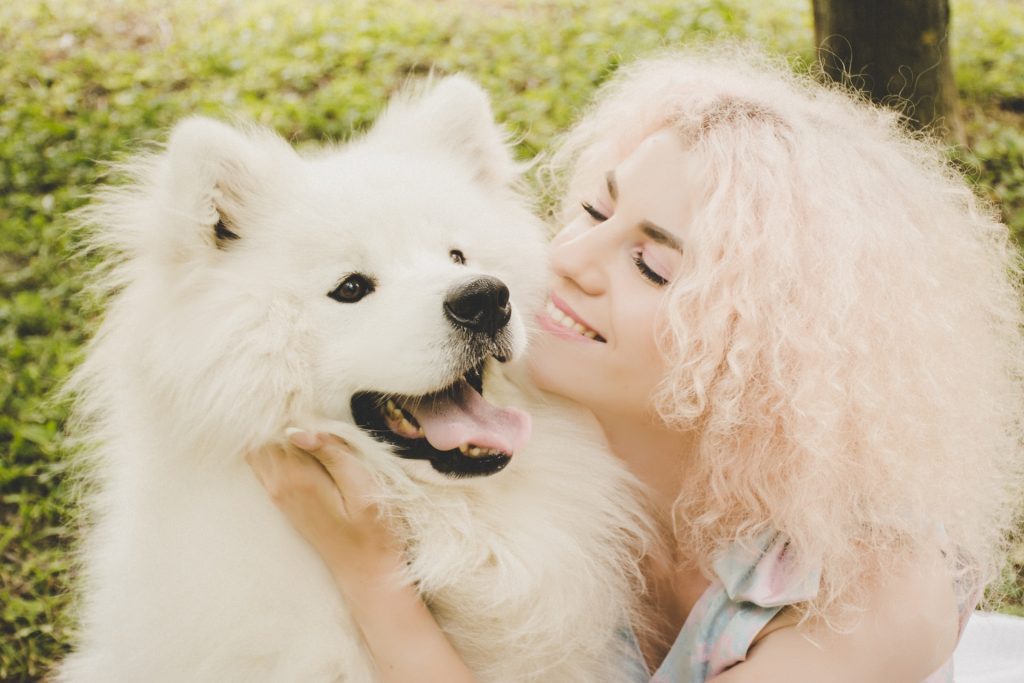Pets hold a special place in our hearts, becoming cherished members of our families. Ensuring their well-being involves more than just cuddles and playtime—it means understanding and addressing their health needs comprehensively. That's why familiarizing ourselves with common pet health conditions is pivotal.
Recognizing symptoms early on and effectively managing these issues can significantly impact a pet's quality of life.
From arthritis to dental problems, skin allergies, and obesity, these conditions are prevalent among our furry companions. Understanding them isn't just about identifying ailments; it's about ensuring our pets live their happiest, healthiest lives.
In this informative yet conversational discussion, we'll dive into the world of common pet health conditions. We'll explore the signs to watch for, strategies to manage these issues effectively, and practical tips to help your pet thrive. Together, let's empower ourselves to be proactive advocates for our beloved pets' well-being.
Arthritis in Pets

Understanding Arthritis
Arthritis in pets, particularly dogs and cats, refers to the inflammation and degeneration of joints, leading to pain, stiffness, and reduced mobility. This condition commonly arises from wear and tear on joints as pets age, often affecting larger breeds and overweight animals.
However, arthritis can also be attributed to genetic predispositions, previous injuries, or underlying health issues like hip dysplasia. Over time, the protective cartilage between joints deteriorates, causing discomfort and hindering smooth movement. Understanding the nature of this degenerative condition is crucial in providing comprehensive care and support for pets facing these challenges.
Recognizing Symptoms
Identifying signs of arthritis in pets requires attentive observation. Watch for subtle behavioral changes such as reluctance to engage in physical activities they once enjoyed, trouble ascending or descending stairs, or stiffness when rising from a resting position. Pets may also exhibit signs of pain like limping or favoring one limb, showing sensitivity when touched in specific areas, or a decrease in overall activity levels. These manifestations often indicate discomfort and reduced joint flexibility, prompting the need for closer attention to their well-being.
Managing Arthritis
Effectively managing arthritis in pets involves a holistic approach. Encourage and maintain a healthy weight through balanced nutrition and regular exercise to reduce joint stress. Low-impact activities like swimming or short, gentle walks can help keep joints mobile without exacerbating discomfort. Consider providing orthopedic bedding to support their joints during rest.
Additionally, consult a veterinarian for suitable pain management strategies, which may include prescription medications, supplements to promote joint health, or alternative therapies such as acupuncture.
By combining these approaches, pet owners can significantly enhance their furry companions' comfort, mobility, and overall quality of life while effectively managing arthritis symptoms.
Dental Problems in Pets

Dental Issues Faced by Pets
Dental problems are prevalent among our furry friends and can significantly impact their overall health. Common dental issues in pets include periodontal disease, tooth decay, gingivitis, and plaque buildup.
These conditions often stem from poor oral hygiene, leading to bacterial growth and subsequent dental concerns. Left unattended, dental issues can lead to pain, discomfort, and even more severe health complications affecting vital organs.
Identifying Dental Problems
Recognizing dental problems in pets requires vigilant observation. Signs indicating dental issues include bad breath (halitosis), swollen or bleeding gums, yellowing or broken teeth, excessive drooling, reluctance to eat hard food, pawing at the mouth, and changes in behavior like irritability or decreased activity.
Regularly checking your pet's mouth for these signs is crucial in detecting problems early and seeking timely veterinary care.
Dental Care Tips
- Proper dental care is essential for preventing and managing dental problems in pets.
- Start by establishing a dental routine, including regular brushing using pet-friendly toothpaste and a soft-bristled toothbrush.
- Offer dental chews or toys designed to reduce plaque and tartar buildup. Implementing a balanced diet and avoiding excessive sugary treats also contribute to oral health.
- Schedule routine dental check-ups with a veterinarian to assess and address any emerging issues.
- Professional dental cleanings under anesthesia may be necessary to remove tartar and address deeper dental concerns.
- By maintaining good oral hygiene practices and seeking prompt veterinary attention when needed, pet owners can actively manage and prevent dental problems, ensuring their furry companions enjoy a lifetime of healthy smiles and overall well-being.
Skin Allergies in Pets

Types of Skin Allergies
Skin allergies are a common concern for our beloved pets, manifesting in various forms. Allergies in pets often include flea allergy dermatitis, food allergies, and environmental allergens such as pollen or mold.
Flea allergy dermatitis occurs due to a hypersensitive reaction to flea saliva, causing intense itching and skin irritation. Food allergies can arise from certain ingredients in your pet's diet, while environmental allergies typically result from contact with substances in their surroundings.
Symptoms of Skin Allergies
Identifying skin allergy symptoms in pets is crucial for prompt intervention. Watch for:
- Persistent itching
- Excessive scratching or licking
- Redness, inflamed skin
- Hair loss (especially around the ears or paws)
- Hot spots
- Recurrent ear infections
Pets may exhibit discomfort through rubbing their faces against surfaces or shaking their heads frequently. These symptoms often indicate an allergic reaction and require attention to alleviate discomfort and prevent further complications.
Managing Skin Allergies
Effectively managing skin allergies involves various strategies. First, determine and eliminate the allergen triggering the reaction whenever possible. Regular flea control measures are essential to prevent flea allergy dermatitis.
For food allergies, consult your veterinarian for appropriate dietary changes, including hypoallergenic food options. Environmental allergens may necessitate minimizing exposure or using specialized shampoos or rinses to alleviate symptoms. Additionally, your vet may prescribe antihistamines, steroids, or immunotherapy to manage severe allergic reactions.
Moreover, maintaining proper grooming practices, including regular baths with gentle, hypoallergenic shampoos, can help soothe irritated skin. By identifying triggers and implementing a comprehensive approach to managing skin allergies, pet owners can significantly improve their furry companions' comfort and quality of life.
Obesity in Pets

Understanding Pet Obesity
Pet obesity is a prevalent health concern affecting numerous cats and dogs worldwide. It often stems from a combination of factors, including overfeeding, lack of exercise, improper diet, and sometimes underlying health conditions.
The implications of obesity in pets are far-reaching, leading to increased risks of various health issues such as diabetes, joint problems, heart disease, and a reduced lifespan. Understanding the causes and repercussions of this condition is crucial for proactive intervention.
Identifying Obesity in Pets
Identifying obesity in pets requires attentive observation. Signs indicating an overweight pet include an inability to feel their ribs easily, an absence of a visible waistline, excessive body fat, and lethargy.
Noticeable weight gain or a significant change in body shape may also indicate obesity. Regularly assessing your pet's body condition and consulting a veterinarian for guidance can help determine if your pet is within a healthy weight range.
Managing Pet Obesity

Managing pet obesity involves a multi-faceted approach. Start by adjusting your pet's diet, ensuring portion control, and choosing high-quality, balanced food to meet their nutritional needs without excessive calories.
Establish a regular exercise routine tailored to your pet's abilities, incorporating activities like walks, play sessions, or interactive toys to encourage movement. Consider measuring meals and offering healthy treats in moderation. Collaborate with your veterinarian to develop a weight management plan, which may involve dietary changes, exercise schedules, and regular check-ups to monitor progress.
Additionally, avoid free-feeding and resist the temptation to overindulge pets with treats. Implementing gradual, sustainable changes and seeking professional guidance can significantly contribute to your pet's weight loss journey, promoting their overall health and well-being.
Conclusion
Vigilance regarding pet health conditions is paramount in ensuring our furry companions lead fulfilling lives. By understanding common issues like arthritis, dental problems, skin allergies, and obesity, pet owners can detect signs early, enabling timely intervention and effective management.
It's crucial to proactively address these conditions by maintaining regular vet check-ups, implementing healthy lifestyle choices, and promptly seeking professional advice when noticing any concerning symptoms in pets. Remember, our pets rely on us for their well-being, and being attentive to their health is a testament to our love and care for them.
For comprehensive pet care solutions and quality medications, CanadaVetExpress offers a wide range of products tailored to address various pet health concerns.
Whether it's flea and tick treatments, joint supplements, dental care products, or prescription medications, CanadaVetExpress provides trusted and reliable options. Visit CanadaVetExpress.com today to access top-notch pet care essentials and ensure your furry friend receives the best possible care. Your pet's health is their priority!




